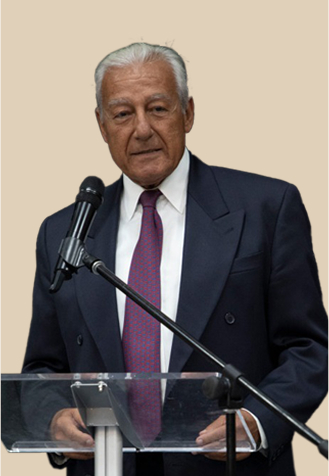ADC Seeks Preliminary Injunction to Block California’s AB 715
FOR IMMEDIATE RELEASE
November 7, 2025
[email protected]
Washington, D.C. | The American-Arab Anti-Discrimination Committee (ADC) has filed a motion for a preliminary injunction in the U.S. District Court for the Northern District of California, San Jose Division, asking the court to halt enforcement of California’s Assembly Bill 715 (AB 715) before it transforms public school classrooms into censored spaces for discussions about Israel, Palestine, and the Middle East. This motion is part of the Prichett et al. v. Newsom et al., Case No. 5:25-cv-9443, the constitutional challenge ADC announced earlier this week.
The brief emphasizes that harm is already occurring. Because AB 715 is scheduled to take effect on January 1, 2026, and directs districts to implement its requirements “as soon as possible” and no later than the next school year, teachers and students are already self-censoring for fear that past or current speech will be used to trigger complaints, investigations, and discipline.
Jenin Younes, ADC National Legal Director and lead counsel in the case said, “AB 715’s ambiguity is already silencing classrooms. That’s why we’re in court today—to stop any preparation or rollout now. A law that fails to define ‘antisemitism’ while importing a federal strategy that blurs protected political speech invites arbitrary punishment. It is vague, overbroad, and viewpoint-based, and the court should block it before further damage is done.”
AB 715, signed by Governor Gavin Newsom last month, purports to strengthen protections against antisemitism in California public schools but never defines the core term “antisemitism.” Instead, it orders districts and a new “Antisemitism Prevention Coordinator” to follow former President Biden’s U.S. National Strategy to Counter Antisemitism, a 60-page policy document that in turn points to the problematic International Holocaust Remembrance Alliance (IHRA) definition. According to the motion, this structure effectively outsources California law to a contested federal policy framework that repeatedly conflates criticism of the State of Israel and Zionism with antisemitism, while California’s Education Code already bans discrimination based on religion, ethnicity, race, and national origin.
The plaintiffs are California public school teachers and students who teach and seek to learn about Israel, Palestine, and the broader Middle East. They argue that AB 715 is unconstitutionally vague under the Fourteenth Amendment Due Process Clause and overbroad and viewpoint discriminatory under the First Amendment. By failing to define antisemitism while strongly suggesting that criticism of Israel and Zionism falls within the statute’s reach, the law leaves educators guessing what they can safely say, invites arbitrary enforcement, and chills classroom instruction and discussion.
ADC’s complaint stresses that California already has strong, existing protections against discrimination based on religion, race, ethnicity, and national origin, and that if the Legislature’s only goal had been to restate those protections, there would have been no need to create a new, undefined speech-policing category tethered to external federal materials. Instead, by inventing that category and leaving the key term “antisemitism” undefined while pointing to contested external guideposts, AB 715 signals that certain perspectives on Israel and Zionism are disfavored and may be singled out for punishment.
“The Constitution does not allow politicians to smuggle an Israeli loyalty litmus test into California’s – and America’s – classrooms,” said Abed Ayoub, ADC National Executive Director. “AB 715 is a censorship law, not a civil rights law. It tells teachers that if they tell the truth about Palestinian history or criticize the Israeli government, they can be investigated and punished. It tells students that their questions and their identities are a liability. We are asking the court to stop this law before it rips up the First Amendment in our schools and hands curriculum decisions to outside pressure groups.”
The motion for preliminary injunction is requesting a hearing date before January 1, 2026.
Recent Posts
Action Alerts

Your support means everything. Your gift protects rights, builds community, and fights hate. Let’s move forward together.
